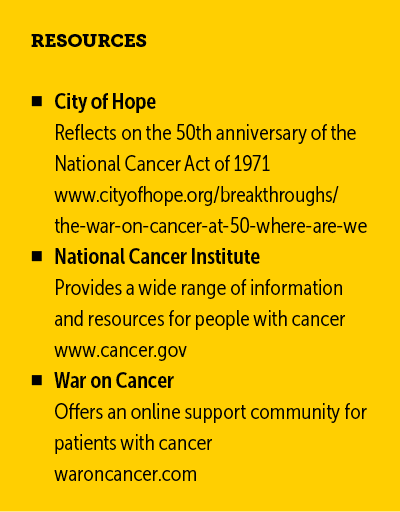How Do I Evolve as a Research Nurse Practitioner?
Which career path will enable me to see the impact of my work in real time in improving a patient’s life? I wondered this until I earned my first nursing degree, followed by a nurse practitioner degree. Soon after, two highly competitive opportunities, a year-long advanced practice RN fellowship and a month-long National Institute of Nursing Research Summer Genetics Institute at the National Institutes of Health, really helped me to have the necessary training and knowledge to shape my career. So, when I got an opportunity to become a research nurse practitioner and manage chimeric antigen receptor (CAR) T-cell therapy clinical trials for patients with multiple myeloma, I knew I had found an answer to my question.
Jump to a section
Which career path will enable me to see the impact of my work in real time in improving a patient’s life? I wondered this until I earned my first nursing degree, followed by a nurse practitioner degree. Soon after, two highly competitive opportunities, a year-long advanced practice RN fellowship and a month-long National Institute of Nursing Research Summer Genetics Institute at the National Institutes of Health, really helped me to have the necessary training and knowledge to shape my career. So, when I got an opportunity to become a research nurse practitioner and manage chimeric antigen receptor (CAR) T-cell therapy clinical trials for patients with multiple myeloma, I knew I had found an answer to my question.
CAR T-cell therapy started emerging a decade ago as a revolutionary approach for treating various hematologic malignancies. Clinical trials for CAR T-cell therapy are often complex, with potential unknown and life-threatening toxicities, warranting a person with a higher skill set and knowledge as a trial manager. Recognizing this need, our institution decided to engage a nurse practitioner to handle such trials. The role of the research nurse practitioner in our institution remained almost nonexistent until 2015. I was often asked, “What is a research nurse practitioner, and what do you do? How is your role different than a clinical nurse practitioner?” I often found it difficult to answer these questions as a novice research nurse practitioner.
After assuming my responsibilities, I immediately found myself surrounded by several challenges, such as lack of knowledge about clinical trial operation, coordination, and time management. The first six months were difficult. I even thought of quitting the job. My principal investigator and my supervisor saw me struggling and gave me encouragement to carry on. I trusted them and decided to give myself a little more time. By the ninth month on the job, everything started making sense. The journey has been rewarding since then. Now, I cannot think of myself in any other role.
As an experienced research nurse practitioner, when I reflect, I feel like I possess skills of knowledge, documentation, and organization, which are instrumental in evolving as a successful research nurse practitioner. As beginners, the focus must be on in-depth knowledge about clinical trial protocol; the disease; what, when, and how to report to the institutional review board; research data and samples to be collected; different phases of clinical trials; and properties and mechanisms of the investigational drug or agent. Thorough knowledge about important aspects of clinical trial operation immensely helps in establishing yourself as a leader. In addition to clinical and research notes, timely and accurate documentation of important events, such as severe adverse events; deviations from the protocol events; and communications with stakeholders, regulatory agencies, the clinical trial sponsor, and trial monitor, are important. Capturing and recording important research data of each participant is essential because that can directly affect overall clinical trial data. An execution of trial-mandated activities and dealing with different stakeholders could be intimidating at times. Therefore, staying organized and prioritizing things helps to avoid unnecessary stress and accomplish the tasks at hand.
Lastly, the initial phase in a research nurse practitioner’s journey could be overwhelming but certainly most rewarding once you settle in. Remember, a clinical trial is the only option for many patients to prolong life. If you want to see the impact of your work in prolonging a patient’s life, this is one such role for you. 
About the Author(s)
Nilesh Kalariya, PhD, AGPCNP-BC, AOCNP®, is a research nurse practitioner in the Department of Lymphoma/Myeloma at the University of Texas MD Anderson Cancer Center in Houston. The author takes full responsibility for this content and did not receive honoraria or disclose any relevant financial relationships. Kalariya can be reached at nmkalariya@mdanderson.org, with copy to CJONEditor@ons.org.

